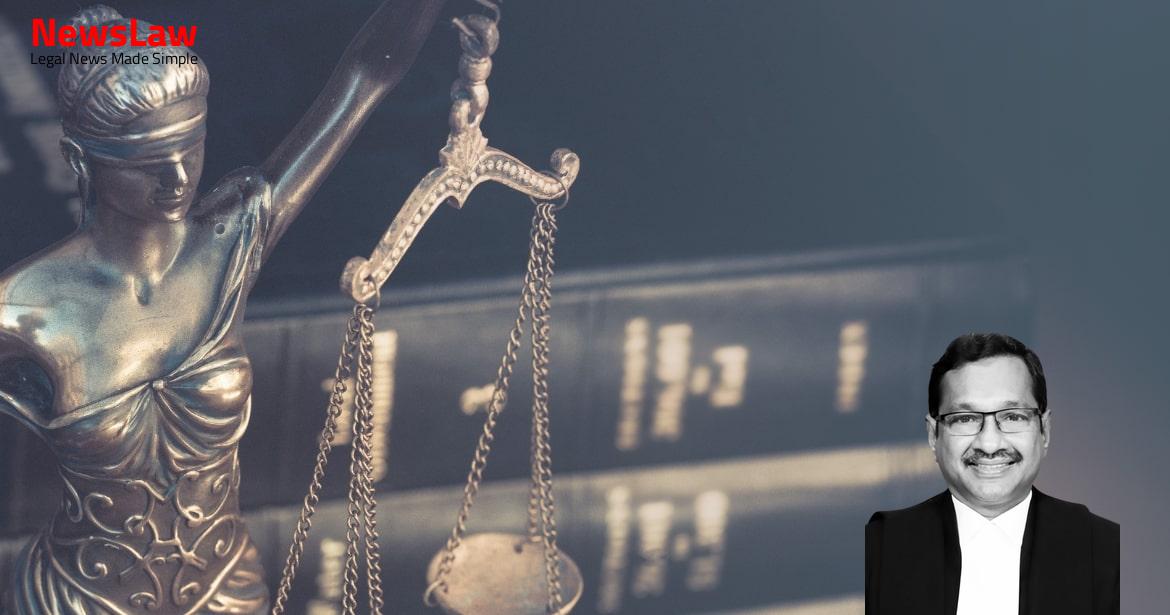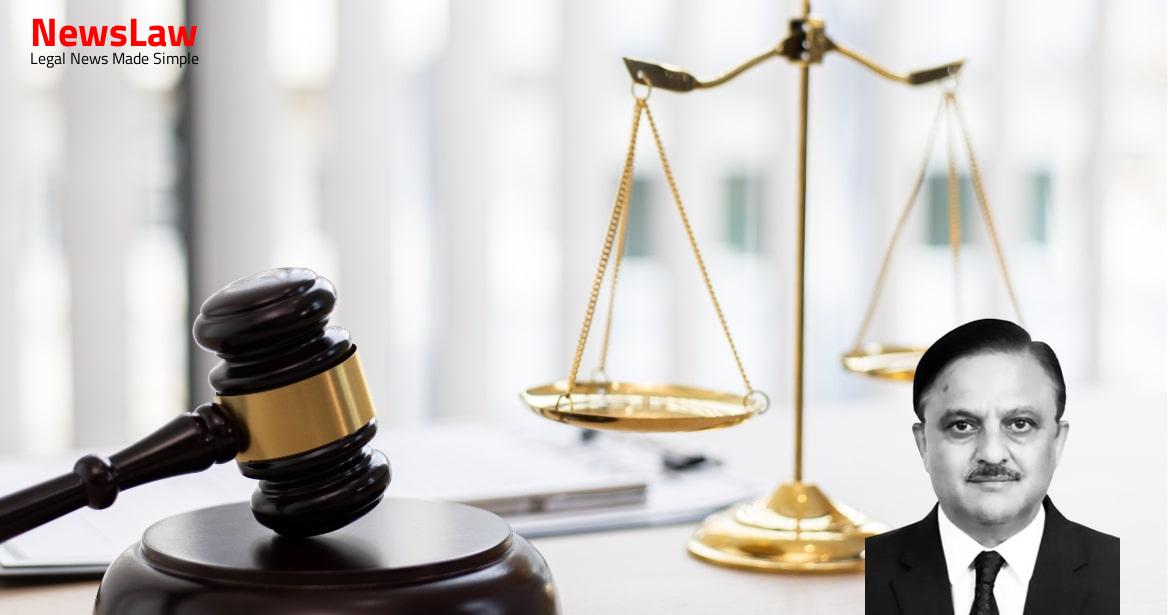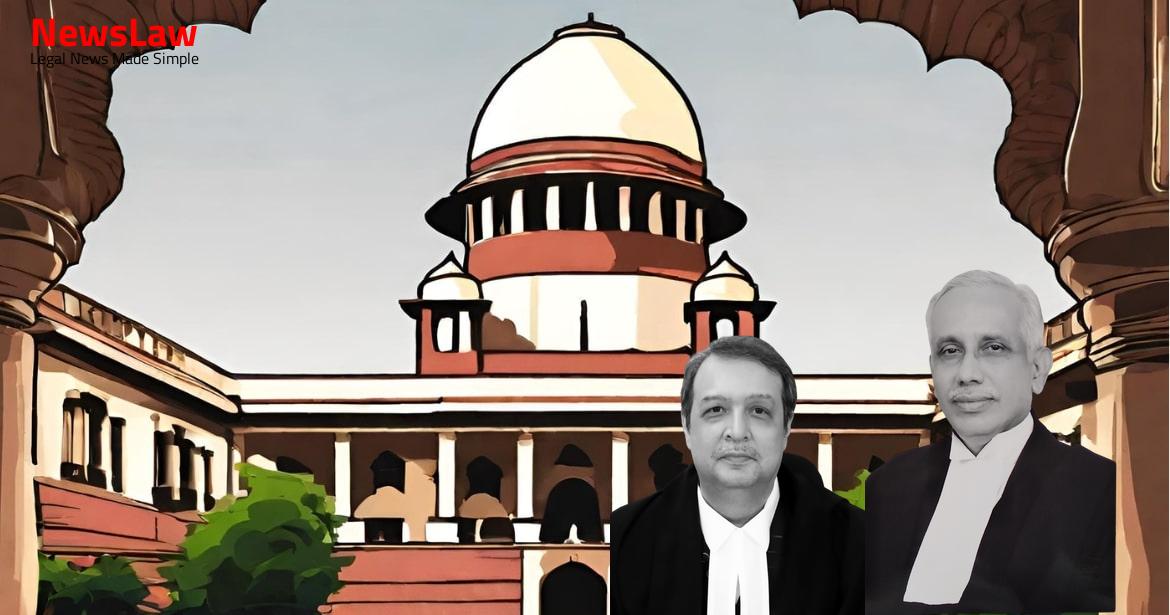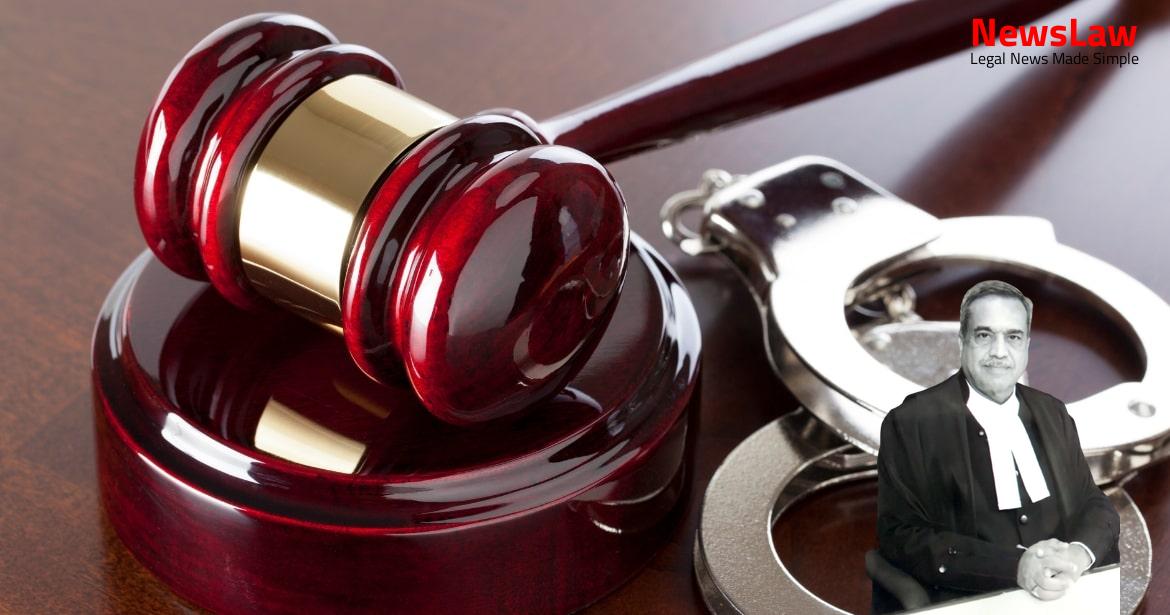The Supreme Court of India delivered a significant judgment in the case of State v. John Doe, highlighting the importance of fair trial rights and adherence to procedural safeguards in the criminal justice system. The case underscores the need for a balanced approach considering both societal impact and individual circumstances, focusing on upholding justice for all parties involved.
Facts
- The High Court found non-compliance of Sections 207, 226, 227 and 230 of the CrPC, 1973
- Conviction and sentence awarded by the trial Court were set aside by the High Court
- Ordered for a de novo trial to be conducted
- Defense counsel provided documents without giving any time to accused for consultation with his lawyer.
- Arguments on framing charges were heard without ensuring accused’s consultation with his lawyer.
- Charges were framed and explained to accused through virtual mode on the same day.
- Charge-sheet was taken on record without FSL report.
- Order passed for summoning prosecution witnesses on the same day charge-sheet was taken on record.
- Accused produced via video conferencing for questioning under Section 313 of CrPC, 1973 without clear evidence of presence.
- Investigating Officer filed application to record evidence of four witnesses in a single day due to alleged pressure from accused’s family members.
- Statements of witnesses recorded through video conferencing disregarding provisions of Video Conferencing for Courts, 2020.
- Hurried questioning of witnesses including Investigating Officer conducted two days after initial day of record-taking.
- Judgment delivered in a rushed manner consisting of 27 pages and 59 paragraphs.
- Defense filed application for time to produce witnesses the day after judgment delivery.
- Counsel for defense’s plea for one week deferment rejected without substantial reason.
- Prosecution made submissions for 10 minutes, while defense argued for 3 hours during arguments.
- Counsel for defense’s repeated plea for adjournment by one week rejected, ultimately facilitating only a day’s adjournment.
- Accused claimed inability to engage a lawyer due to being behind bars.
- Order passed without notice to accused or counsel, apparently without considering Witness Protection Scheme, 2018.
Also Read: Case of NIA v. Respondents: Revisiting Authorization under Section 196-A of CrPC, 1989
Issue
- The observation made against the appellant needs to be evaluated for justification.
- The appellant has not been given the opportunity to present their side of the story.
- The principle of natural justice requires that all parties be heard before coming to a conclusion.
Also Read: Understanding the Supreme Court Judgment in Criminal Appeals: Yogesh @ Sonu Tharu vs. The State
Arguments
- The appellant, who has discharged his judicial function, should not be acted upon without a hearing as it goes against the law.
- The counsel for the respondent-accused did not raise serious objections during the trial, where no witness was produced on behalf of the defense.
- Citing various legal precedents like Munna Pandey v. State of Bihar, Akil v. State (NCT of Delhi), Sakshi v. Union of India, State of Maharashtra v. Mahesh Kariman Tirki, and Pradeep S. Wodeyar v. State of Karnataka to support the appellant’s submission.
- Serious procedural violations have been admitted by Mr. C. U. Singh, senior counsel for the High Court and the accused.
- Amicus Curiae appointed for the accused should be granted meetings and discussions with the accused as per normal practice.
- Procedure established by law, including compliance with Section 309 of the CrPC, 1973, and POCSO Act, 2012, has been followed according to Mr. Vikas Singh, senior counsel for the informant and Trial Judge.
- Even if there is a procedural flaw, Section 465 of the CrPC, 1973 does not mandate remittal.
Also Read: Supreme Court Judgement: State vs. Environmental Conservation Society
Analysis
- The judgment emphasizes the importance of fair trial and adherence to procedural safeguards throughout the criminal justice system.
- The Court lays down certain norms to avoid the repetition of the observed infirmities in the case.
- It underscores the need for a minimum of seven days in general for trial proceedings, with exceptions for witness availability.
- Special reasons must be recorded for adjournments without examining witnesses present.
- The judgment discusses the importance of the continuation of prosecution and trial even after significant delay to avoid prejudicing either party.
- It highlights the significance of consultation and access to legal practitioners during various stages of criminal proceedings.
- The Court stresses the need for a balanced approach considering both societal impact and individual circumstances while determining punishments.
- It suggests the possibility of community service as an alternative punishment and the need for a reformation-focused sentencing policy.
- The judgment touches upon the issue of equal sentencing, the role of precedent, and the necessity for sentencing guidelines to address disparity.
- It urges for increased attention to mitigating circumstances, especially to avoid retributive responses to crimes.
- The importance of due compliance with relevant laws at every stage, including specific procedural requirements, is reiterated.
- The judgment advocates for a comprehensive policy on sentencing, involving various experts and stakeholders for a more uniform and purposeful justice system.
- Article 22(1) provides the right to be defended by a legal practitioner from the beginning of the trial, not just after its commencement as per Section 304 CrPC.
- A fair trial is crucial and must be concrete, established early to account for the accused’s mental state at the time of the crime.
- Psychiatric evaluation close to the offence aids in evaluating the accused’s progress towards reformation during incarceration.
- The State must collect additional information about the accused in a time-bound manner.
- A fair trial is essential for justice, balancing the interests of the accused, victim, and society.
- Any breach of fair trial rights adversely affects the community and violates fundamental human rights.
- Failure to provide a fair trial is detrimental not only to the accused but also to the victim and society.
- Justice must be done and seen to be done to uphold the majesty of the law.
- The duty of the court is to prevent miscarriage of justice and maintain public confidence in the administration of justice.
- Detailed examination and evaluation should determine if there was indeed a failure of justice in the trial process.
- The appellant is advised to approach the High Court for intervention over the administrative action taken.
- No interference is deemed necessary on the judicial side by the court.
- The accused is still in custody, hence the court refrains from delving into the merits of the non-compliance issue.
- The administrative action taken does not warrant judicial intervention as per the discussion provided in the judgement.
Decision
- Appeals dismissed with directions
- Trial court to keep in mind the mandate of POCSO Act, 2012 while recording victim’s evidence
- IA No 29814/2023 stands dismissed
- Remand extended by orders dated 24.12.2021 and 05.01.2022
- Charge-sheet filed on 12.01.2022 for the stated offences
- Pending applications allowed
- Court to conduct and complete trial expeditiously as per Section 35 of POCSO Act, 2012
- Government of India to file affidavit on feasibility of introducing sentencing policy within six months
- Copy of judgment to be forwarded to Department of Justice, Ministry of Law and Justice, Government of India
- Accused produced before Judicial Magistrate on 13.12.2021 and remanded to custody till 24.12.2021
- Accused arrested on 12.12.2021
Case Title: SUNITA DEVI Vs. THE STATE OF BIHAR (2024 INSC 448)
Case Number: Crl.A. No.-003924-003924 – 2023



